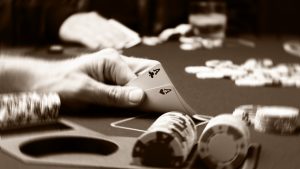
The previous article probably sounded somewhat pessimistic. However, it's not all that bad. You probably don't want to give up control so easily, and that's a good sign. Do you want to improve in poker? Do you want to be the best? Then you need to thoroughly understand these facts so you can overcome them and move forward. As much as possible, stop identifying yourself as your consciousness. You are more than that. You are the entirety of your mind; consciousness is just the messenger and negotiator. The main goal now is to influence your subconscious by all means available to us so that we can develop our abilities as poker players. These trainings and influences are controlled by consciousness. After all, consciousness is the only part of us that we can control. And while it helps us very well to deal with the immediate environment, influencing the subconscious is a more difficult task for it.
Hopes, desires, and expectations are wonderful things, but the subconscious doesn't care about them at all. The neural networks connected to the subconscious will continue their initiated “work,” often conflicting with the goals of consciousness. The conscious mind wants to change us but cannot; it can only influence external things. This is the essence of falsely formed goals. A player gets confused, thinking that consciousness can affect both external circumstances and the subconscious.
So, essentially, we cannot directly influence ourselves, but we still want to become professionals. So, what do we do? We bypass the entire system.
Instead of expecting that conscious thoughts will automatically change the subconscious, you have to take a roundabout way. For example, by involving your environment in the process, which you can change in the direction you want to improve your subconscious mind. Therefore, conscious self-development in poker, as in everything else, must mediate with the subconscious through the environment. Create an environment that encourages you to grow, and you will immediately see positive results. Trying to force yourself to grow with just conscious effort usually ends in failure.
The metaphor from the movie “Ghost in the Shell” fits quite well here. But like all ghosts, consciousness is not always alert; it appears only at certain times and under certain circumstances. By creating an environment that strengthens our goals, we can create a messenger for our conscious intentions—a ghost for another ghost, which stays alert, forming new schemes in the subconscious when our consciousness disappears.
Therefore, the first step is to change your environment so that it encourages growth. The second is to try to understand the entire system of the mind, not just consciousness (which is quickly accessible through self-observation) but also the subconscious. You must resolutely and sincerely examine your subconscious habits, tendencies, fears, and all the weakest points of your game.





